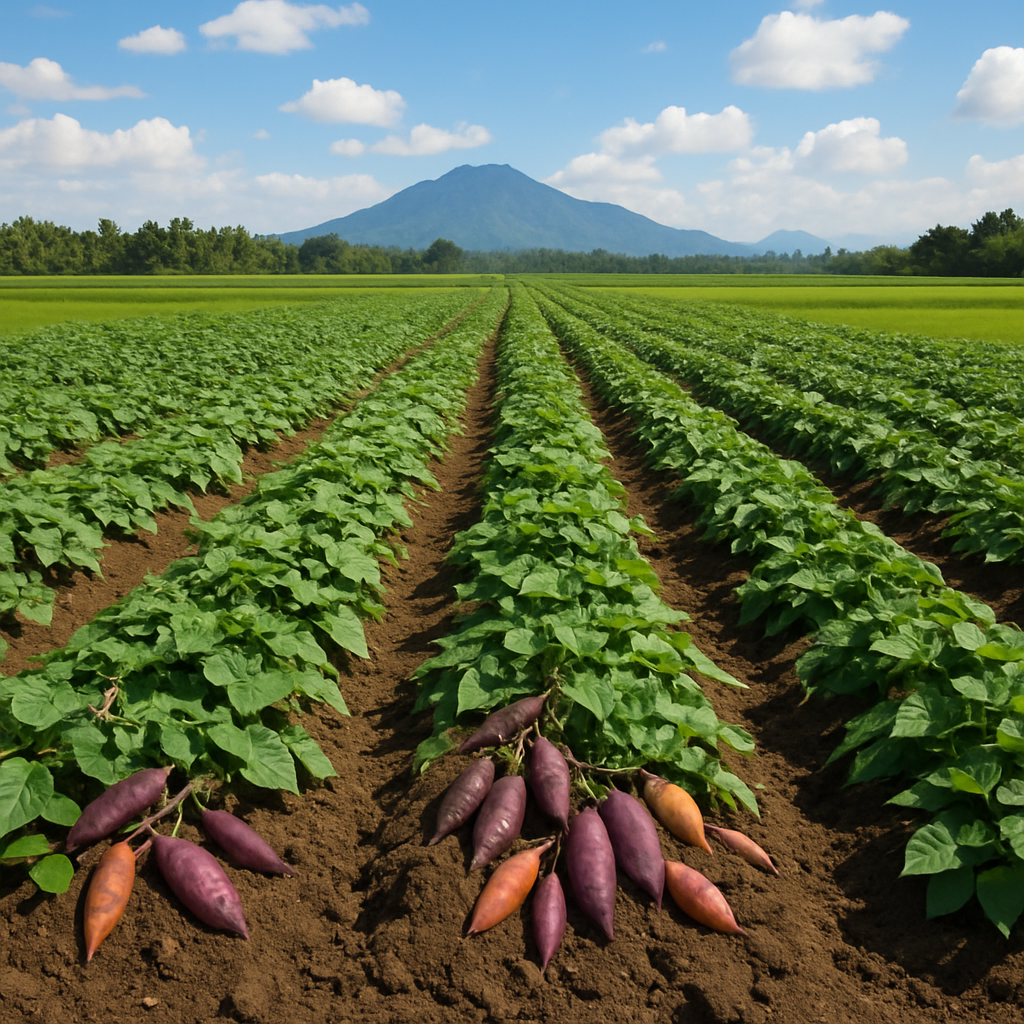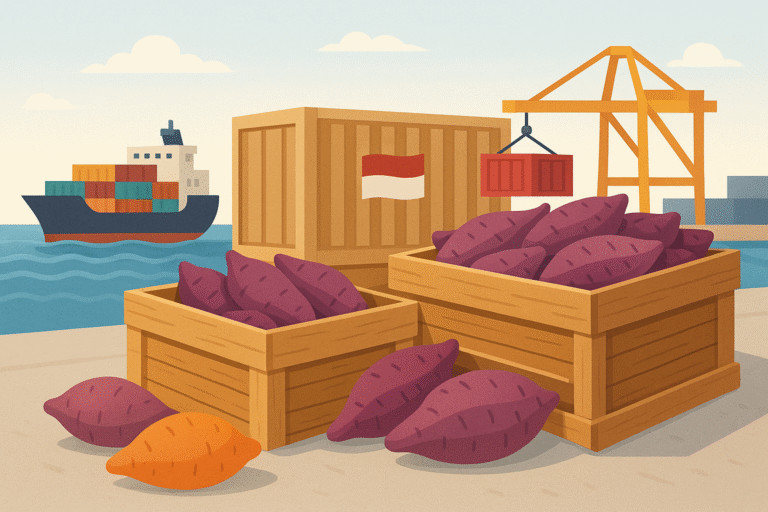
Indonesian Farmers and Sweet Potato Cultivation
Sustaining Tradition and National Food Security
Indonesia, as a tropical archipelago with fertile soil and abundant rainfall, has long been recognized as an agricultural nation. Among the many crops cultivated across its islands, sweet potatoes (Ipomoea batatas) hold a special place. Grown in both lowland and highland regions, sweet potatoes are an important source of carbohydrates for millions of Indonesians and a vital commodity for local economies.
Indonesian sweet potato farmers, many of whom work on small family-owned plots, practice a blend of traditional knowledge and natural farming methods. They plant, tend, and harvest their crops using simple tools such as hoes and sickles. The sight of farmers wearing wide-brimmed caping hats, crouched under the tropical sun while harvesting tubers from the soil, remains a common scene in rural Indonesia.
Sweet potatoes are valued not only for their adaptability to various soil types and climates but also for their role in strengthening food security. During difficult times, such as droughts or economic crises, sweet potatoes provide a reliable and affordable food source. Farmers typically rotate sweet potato crops with other staples like corn, peanuts, or cassava to maintain soil fertility and reduce the risk of pests.
Beyond domestic consumption, Indonesian sweet potatoes — especially the purple and orange varieties — are gaining popularity in international markets for their rich nutritional profile, including high levels of beta-carotene, antioxidants, and dietary fiber. This opens up new opportunities for farmers to increase their income through export-oriented production.
However, sweet potato farmers in Indonesia still face challenges. Limited access to modern agricultural technology, fluctuations in market prices, and difficulties in accessing wider markets often hinder their progress. Recognizing this, both government and private sectors are working to provide support through farmer training programs, improved seed varieties, better irrigation systems, and initiatives to connect farmers with larger buyers.
In the future, sweet potato farming in Indonesia has the potential to thrive as part of sustainable agriculture practices. With continued support and innovation, Indonesian farmers can continue to preserve their agricultural heritage while improving their livelihoods and contributing to national food sovereignty.




